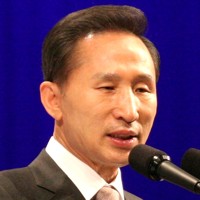BEIJING -- Senior leaders from China, Japan and South Korea met in Beijing last weekend for a trilateral summit, where they signed an eye-catching agreement to work toward establishing a free-trade zone, the latest in a flurry of trilateral economic deals in recent months. But despite these developments, the geopolitical situation in Northeast Asia remains fragmented, and a multilateral architecture capable of containing latent regional threats is some way off.
Recent months have brought a series of initiatives to increase economic integration among the three countries. In March, Tokyo announced it would invest in Chinese sovereign bonds for the first time, while Beijing has been steadily increasing its holdings of yen-denominated and won-denominated assets since the U.S. credit-rating downgrade last July.
South Korean and Japanese financial institutions have featured prominently in the recent expansion of China's Qualified Foreign Institutional Investment scheme, most notably the Bank of Korea and the Korean Pensions Service, the country's largest state-run pension fund. There was also news last week of an agreement among Japan's Mitsubishi, Korea Gas, PetroChina and Royal Dutch Shell to cooperatively develop the large-scale "LNG Canada" pipeline and regasification project linking Canadian gas reserves in British Columbia to Asia. The deal could be interpreted as signaling the emergence of a less zero-sum approach to resource security policy.

